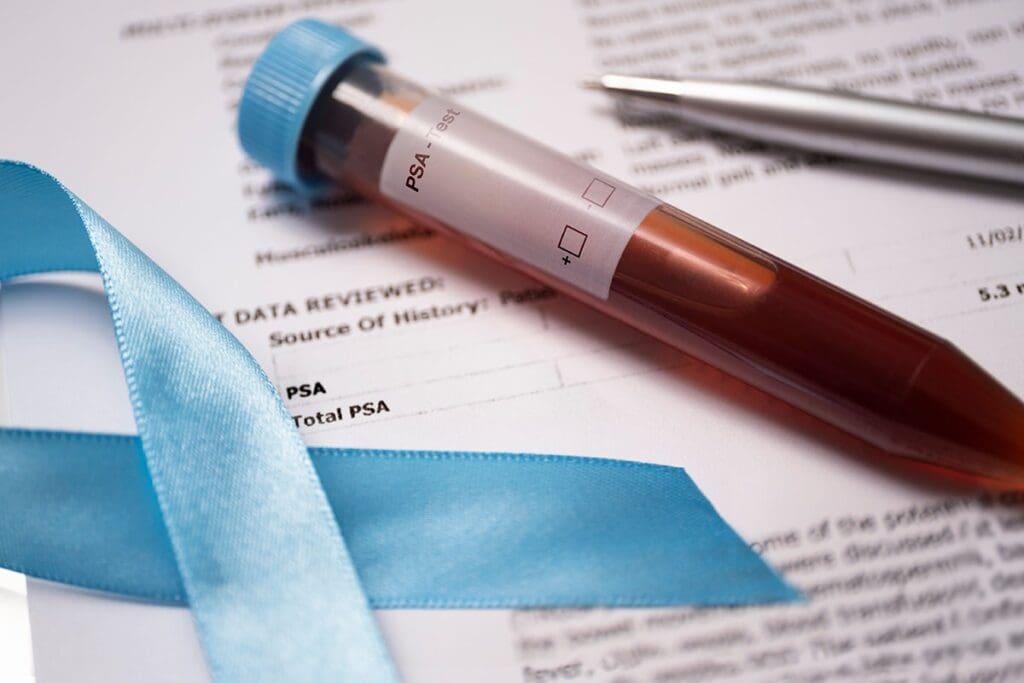Last Updated on November 25, 2025 by
Turmeric is a spice known for its bright color and health benefits. It has gained attention for its role in prostate health and is often included in the Best PSA Supplements. The key to turmeric’s benefits is curcumin, its active compound. Curcumin is known for its anti-inflammatory and antioxidant properties.
Studies suggest that curcumin may help lower PSA levels in men with prostate issues. A study found that men taking 1440 mg of curcumin daily had lower PSA levels. This shows turmeric could be one of the Best PSA Supplements to lower PSA levels and support overall prostate health.

Understanding the link between turmeric and PSA levels is key. We’ll look at the latest research on turmeric and prostate health. We’ll explore how turmeric can support men’s health.
Prostate-specific antigen (PSA) is key in men’s health. Knowing about PSA is important for taking care of your prostate. We’ll cover the basics of PSA, how it’s measured, and what normal and high levels mean.
PSA is a protein made by the prostate gland. The PSA test checks PSA levels in your blood. It helps see how healthy your prostate is.
High PSA levels might mean prostate cancer or other issues like prostatitis or BPH. The PSA test is a big help in finding prostate cancer early. This means doctors can treat it sooner.
PSA levels usually range from 0 to 4 ng/mL. But, age and other things can change this. If your PSA is over 4 ng/mL, it’s considered high.
But, a high PSA doesn’t always mean cancer. It can also show non-cancerous conditions.

A study showed men with PSA levels between 4 and 10 ng/mL have a 25% chance of having prostate cancer. Knowing about PSA levels is key for the right diagnosis and treatment.
Many things can raise PSA levels, including:
Talking to a doctor is important to find out why your PSA is high. They can help decide what to do next. Understanding PSA is a big part of proactive health management.
Turmeric is a spice used in cooking and traditional medicine. It has been studied for its health benefits, including lowering Prostate-Specific Antigen (PSA) levels. The main compound in turmeric is curcumin. Studies have focused on how curcumin affects PSA levels, looking at its impact on androgen receptors and PSA suppression.
Curcumin is the most active part of turmeric. It has anti-inflammatory and antioxidant properties. Curcumin’s bioactive properties can influence biological pathways, which may affect PSA levels.
Curcumin can reduce androgen receptor (AR) expression. AR is important for PSA regulation. By affecting androgen receptors, curcumin may lower PSA levels indirectly.
Laboratory studies show curcumin can reduce PSA expression. It does this by limiting AR binding to the PSA gene. This mechanism of PSA suppression indicates curcumin may directly lower PSA levels.

In summary, curcumin in turmeric may help lower PSA levels. It does this by affecting androgen receptors and suppressing PSA expression.
To see if turmeric can lower PSA levels, we look at clinical trials. Turmeric, with its active part curcumin, has been studied. It’s to see if it can reduce Prostate-Specific Antigen (PSA) levels.
Randomized, double-blind trials are top in research. They show if something works well. Many trials have looked at turmeric or curcumin’s effect on PSA levels.
A key study found that curcumin supplementation lowers PSA during treatment.
A special trial caught our attention. It was a randomized, double-blind, placebo-controlled study. Patients taking 1440 mg of curcumin daily saw PSA levels drop.
This shows curcumin might help manage PSA levels. The study’s results are hopeful for turmeric/curcumin’s role in PSA management.
Even with good trial results, there are limits. The studies have few participants and vary in length. Curcumin’s bioavailability also affects results.
More research is needed. It should be bigger and longer to fully understand turmeric/curcumin’s effects on PSA levels.
In summary, turmeric, or curcumin, might help lower PSA levels. But, we need more studies to confirm this. We also need to know how safe it is for long-term use.
Certain supplements have shown promise in managing PSA levels. We will look at turmeric/curcumin, saw palmetto, green tea extract, and pomegranate extract.
Turmeric, with its active compound curcumin, has been studied a lot. Curcumin may lower PSA levels by stopping cancer cells from growing and reducing inflammation.
Saw palmetto is also studied for its benefits in prostate health. Some studies suggest it may reduce symptoms of an enlarged prostate, which can be linked to PSA levels.
Green tea extract is full of antioxidants called catechins. Green tea catechins may lower PSA levels by stopping cancer cells from growing.
Pomegranate extract is also studied for its role in prostate health. Studies suggest pomegranate juice or extract may slow the rise of PSA levels in men with prostate cancer.
In conclusion, while these supplements show promise, it’s essential to consult with a healthcare provider before adding them to your regimen.
Using turmeric to lower PSA levels depends on several things. These include the right dosage and how well your body absorbs it. Knowing how to use turmeric is key to its benefits.
Research shows that 1440 mg of curcumin daily can help manage PSA levels. Consistency is key when taking turmeric supplements for the best results.
Curcumin’s bioavailability is a big challenge. Piperine, found in black pepper, greatly improves curcumin’s bioavailability. Look for turmeric supplements with bioavailability enhancers.
“The bioavailability of curcumin is enhanced by piperine, making it more effective in the body.”
Turmeric is generally safe, but high doses can upset your stomach. It’s important to consult with a healthcare provider before starting any supplement. This is even more important if you’re on medication or have health issues.
By knowing the right dosages, addressing bioavailability, and being mindful of side effects, you can use turmeric effectively. It can be a valuable part of your PSA management plan.
Knowing when to talk to healthcare providers about PSA levels is key. It helps ensure you get the right medical care on time. Understanding when to seek help is important for managing prostate health.
Some symptoms and health changes need immediate doctor visits. These include:
Seeing these symptoms doesn’t mean you have prostate cancer. But, they do need quick doctor checks.
“Early detection and diagnosis are key to managing prostate health well.”
American Cancer Society
Knowing about supplement-medication interactions is important. For example:
Always talk to your doctor before starting new supplements, if you’re already on meds.
It’s important to keep an eye on PSA levels when using supplements. This helps catch any changes early. Here’s what we suggest:
By watching PSA levels closely and working with your doctor, you can make smart choices for your prostate health.
Turmeric, with its active compound curcumin, may help lower PSA levels and slow tumor growth. Adding turmeric to your PSA management plan could be beneficial. It’s a good idea to use it alongside traditional treatments.
Before adding turmeric to your plan, talk to your healthcare provider. They can help weigh the benefits and risks. This ensures turmeric is used safely with other treatments.
Using turmeric in your PSA management plan could improve your prostate health. Discuss the right dosage and any possible interactions with your healthcare provider. This will help you get the most out of turmeric.
Yes, turmeric might help lower PSA levels. Its active part, curcumin, has shown promise in studies. It can affect androgen receptors and reduce PSA production.
Curcumin can decrease PSA levels by affecting androgen receptors. Studies in labs have shown it can suppress PSA by blocking androgen receptors.
For lowering PSA levels, a dose of 1440mg of curcumin daily is suggested. But always talk to a healthcare provider before starting any supplements.
Yes, turmeric supplements might not be well absorbed due to curcumin’s poor bioavailability. Look for supplements with piperine or curcumin extracts for better absorption.
Always check with a healthcare provider before taking turmeric supplements with other meds. Turmeric can interact with some drugs, like blood thinners, and may affect their effectiveness or increase side effects.
It’s important to get regular PSA tests while on turmeric supplements. Talk to your healthcare provider about the best testing schedule and any changes in your PSA levels.
Yes, supplements like saw palmetto, green tea extract, and pomegranate extract might also lower PSA levels. But, the evidence for these is not as strong as it is for turmeric, and more research is needed.
No, you should not rely only on turmeric supplements for managing PSA levels. Work with your healthcare provider to create a plan that includes regular testing, a healthy lifestyle, and any necessary medical treatment.
Turmeric supplements are usually safe, but high doses can cause stomach issues like nausea, diarrhea, or upset stomach. Always talk to your healthcare provider about any concerns and the best treatment.
Look for turmeric supplements with a standardized curcumin extract and bioavailability-enhancing compounds. Choose products from reputable companies. Your healthcare provider or a qualified professional can help guide you.
Subscribe to our e-newsletter to stay informed about the latest innovations in the world of health and exclusive offers!